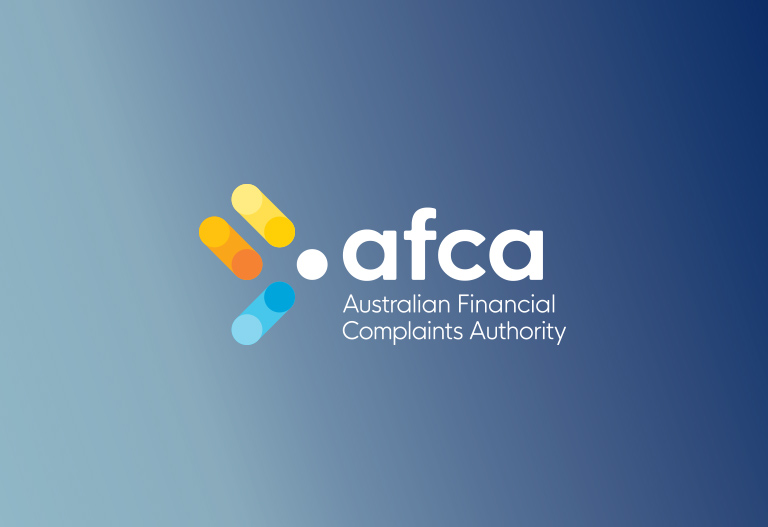Insolvency & Debt Disputes
Time is of the essence when it comes to commercial and personal debt recovery. We help small businesses and individuals maximise their debt recovery whilst minimising the stress.
Insolvency & Debt Disputes
We can assist individuals and small businesses recover personal and commercial debts. If you have received a demand, or have been served with court proceedings from a liquidator seeking:
1. payment of an unfair preference; or
2. payment for an uncommercial transaction.
Navigating the complexities of debt and insolvency disputes requires expertise. As your dedicated financial dispute lawyers, we possess the knowledge and experience to guide you every step of the way. Our deep understanding of insolvency, litigation, and commercial law enables us to offer personalised solutions tailored to your unique needs, whether you're a debtor, creditor, director, shareholder, or company member.
With us by your side, you can confidently make informed decisions, safeguard your interests, and achieve efficient resolutions. Ready to discuss your situation? Contact us today for expert insolvency and debt dispute guidance.
Types of disputes
On behalf of a company
If your business is owed money by an insolvent debtor that is now in administration and being liquidated, time is of the essence when it comes to seeking legal advice. Engaging an expert debt recovery lawyer like Financial Dispute Legal is critical in maximising the recovery of your debts. Debt and insolvency dispute are a complex process with multiple parties often competing for diminishing reserve of capital. This is why investing in representation ensures you're the best placed to recovery your commercial debts.
On behalf of the individual
Facing insolvency and debt disputes as an individual can be overwhelming both financially and emotionally. Our specialised debt recovery lawyers prioritise restoring your financial health by effectively addressing these challenges and recovering outstanding debts. We're empathetic to your situation and understand it's not an easy process. However we do everything possible to maximise the recovery of your debt and minimise the stress incurred.
Frequently Asked Questions
An uncommercial transaction is where someone has purchased goods or property of the company, which resulted in a detriment to the company, during the two (2) years prior to the company going into liquidation.
Typically uncommercial transactions involve the purchase of commercial equipment or real property for less-than market value. Accordingly, the liquidator will usually seek payment of the difference between the purchase-price and market value.
Again, just because a liquidator makes an uncommercial transaction claim against you, it does not automatically mean that you are liable to make payment.
To succeed the liquidator is required to establish that:
1. the company was insolvent at the time of the voidable transaction (or became insolvent as a result of the transaction);
2. the transaction provided little or no benefit to the company; and
3. the transaction gave you (or another third party) a benefit.
Similarly to an unfair preference, you can raise the good faith defence as a complete defence to an uncommercial transaction. You can also defend on the basis that you did pay market-value.
An unfair preference is where someone has received payment(s) from the company for goods and/or services that were provided to the company, during the six (6) months prior to the company going into liquidation.
It is important to know that, just because a liquidator makes an unfair preference claim against you, it does not automatically mean that you are liable to make payment.
That is because the liquidator is required to establish that:
1. the company was insolvent at the time of the voidable transaction (or became insolvent as a result of the transaction);
2. the debt was an unsecured debt of the company (i.e. that you don’t hold security);
3. there are other unsecured creditors of the company; and
4. the amount received by you was greater than what you would have received in the liquidation (i.e. payment of your invoice gave you 100c in the dollar, but in the liquidation you may only be able to receive 10c in the dollar).
Even if all of the elements of an unfair preference claim can be established, the following defences may be available to you:
1. Good faith defence
This defence is available in circumstances where you had no reasonable grounds to suspect that the company was having money troubles, and accordingly, received payment from the company in “good faith”.
2. Running account defence
This defence is available in circumstances where you had an ongoing business relationship with the company, whereby you would supply goods and/or services to the company from time to time, and the company would make payments to you for those goods and/or services from time.
If the company’s debt to you increased during the six-months prior to liquidation, you can raise this as a defence to the entire amount of the unfair preference claim.
If the company’s debt to you decreased during the six-months prior to liquidation, you can raise this as a partial defence, that you are only liable for the amount of the decrease.
A set-off of other debts you may have against the company is no longer available as a defence to an unfair preference claim.
Upon appointment to an insolvent company, one of the liquidator’s roles is to identify any transactions which may be “voidable”pursuant to Part 5.7B Division 2 of the Corporations Act 2001 (Cth).
Voidable transactions provides liquidators with a means to recover a financial benefit received by someone, which ought be divided evenly between all of the unsecured creditors of the company. This ensures that all unsecured creditors receive equal treatment when a company goes into liquidation.
After identifying potential voidable transactions, the liquidator will typically issue a demand letter to the person or business to whom the liquidator considers has received some financial benefit to the detriment of the other unsecured creditors. Should the liquidator not receive a response, or seek to escalate the matter they may commence court proceedings.
At Financial Dispute Legal, our team of experts are specialists in the field of compensation claims against financial advisors. We aim to help you understand your legal rights and options in recovering your losses. Our passion at Financial Dispute Legal is utilising our expert knowledge and experience to develop a case that best supports the client’s claim.
Generally, a claim must be made within 6 years of when the financial loss occurred. Extensions can be granted by the courts, however, this is solely at the court’s discretion. We recommend contacting the team at Financial Dispute Legal as soon as possible to discuss your legal options and time limits.
Not sure if you have a claim?
Recent Cases
Fee Structures
Our fee structures have been developed to provide you with accessible legal support and to ensure we can get the best outcome for you.
We understand the importance that transparency plays in trust, so we make sure to discuss fees up-front.
For certain Financial Advice Dispute cases we provide no-win-no-fee. You will be advised after your initial consultation and assessment if this applies to you.
Where possible, our team will provide you with a fixed fee amount for each stage of your claim. This fee is billable regardless of the outcome of your case.
If your claim requires a hourly fee structure, we will advise you of cost estimations at every step of your claim to ensure you have control over costs at all times.
Working with us
Our lawyers will prompt you to gather all the preliminary information we require in order to advise whether you may have a claim, this can be as quick as a 15 minute call.
If we identify the opportunity for a claim in our initial call we will then proceed with a comprehensive assessment into your case, including gathering witness statements, identifying and locating key documentary evidence, and consulting with experts.
Based on our findings we will offer recommendations on the appropriate legal action to pursue your claim, and clearly explain your next steps.
At this point of engaging us, we will advise you on the fee structure involved in your claim so you are aware of costs involved before proceeding.




